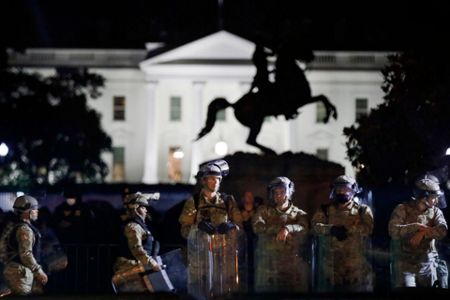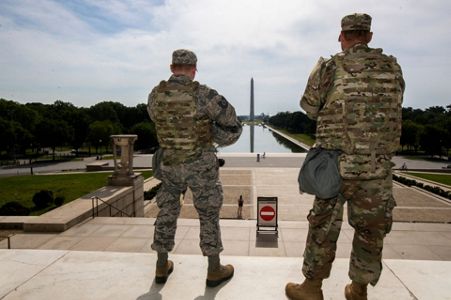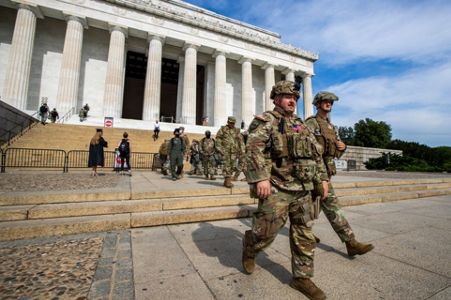WASHINGTON (AP) — In an abrupt reversal, Defense Secretary Mark Esper on Wednesday overturned an earlier Pentagon decision to send a couple hundred active-duty soldiers home from the Washington, D.C., region, amid growing tensions with the White House over the military response to the protests.
Army Secretary Ryan McCarthy told The Associated Press that he was told about the reversal after Esper attended a meeting at the White House, and after other internal Pentagon discussions. It is unclear if Esper met with President Donald Trump. McCarthy said he believes the change was based on ensuring there is enough military support in the region to respond to any protest problems if needed.
McCarthy said he received notice of the Pentagon order to send about 200 soldiers with the 82nd Airborne’s immediate response force home just after 10 a.m. Wednesday. Hours later, the Pentagon notified him that Esper had reversed the decision. Esper is the final authority on deployment decisions, but other military officials, including the Joint Chiefs of Staff, also participate in the decision-making.
The move to keep the troops in the region, however, comes as Pentagon leaders continue to insist they do not want to use active-duty forces to help quell the protests. Earlier in the day, Esper had tamped down threats from Trump about sending troops to “dominate” the streets, telling reporters at a Pentagon news conference that he opposes using military forces for law enforcement in containing the current street protests.
Active-duty troops should be used in the U.S. “only in the most urgent and dire of situations,” He said, adding, “We are not in one of those situations now.”
“It is our intent at this point not to bring in active forces, we don’t think we need them at this point,” McCarthy said in an interview with The Associated Press. “But it’s prudent to have the reserve capability in the queue, on a short string.”
The AP reported earlier Wednesday that the 82nd Airborne soldiers would be the first to leave and would be returning home to Fort Bragg, N.C. The remainder of the active-duty troops, who have all been kept at military bases outside the city in northern Virginia and Maryland, would get pulled home in the coming days if conditions allowed.
But then the Pentagon changed its plans.
“It’s a dynamic situation,” said McCarthy, adding that the 82nd Airborne troops “will stay over an additional 24 hours and it is our intent — we're trying to withdraw them and get them back home.”
The active-duty troops have been available, but not used in response to the protests.
About 1,300 active-duty troops were brought in to the capital region early this week as protests turned violent. The protests came in the aftermath of the death in Minnesota of a black man, George Floyd, who died after a white police officer pressed his knee to Floyd’s neck for several minutes.
The active-duty unit that will be last to remain on alert is the Army's 3rd Infantry Regiment, which is normally most visible as the soldiers who stand at the Tomb of the Unknown Soldier. The troops, known as the Old Guard, are based close to D.C. at Fort Myer, Virginia, and have been on 30-minute alert status. They would continue to be prepared to respond to any emergency in the region within a half-hour for as long as needed.
Pentagon leaders have consistently said there continues to be no intent to use the active-duty forces in any law enforcement capacity. They would be used to assist the National Guard or other forces.
So far, Indiana has sent about 300 National Guard troops to D.C., Tennessee has sent about 1,000 and South Carolina has sent more than 400.
Copyright 2020 The Associated Press. All rights reserved. This material may not be published, broadcast, rewritten or redistributed without permission.








